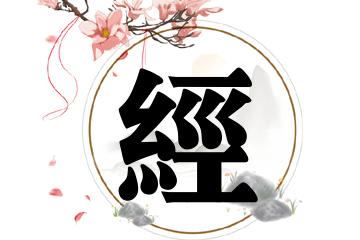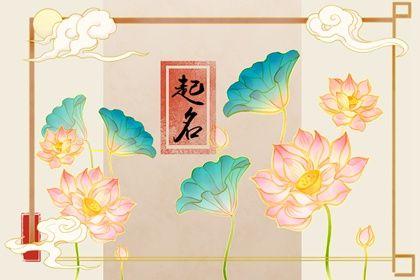如何为茶馆产品起一个令人惊艳的名字
- 作者: 马晏溪
- 来源: 投稿
- 2024-10-19
一、如何为茶馆产品起一个令人惊艳的名字
1. 突出茶叶的独特品质
茶叶产地:如“大吉岭之巅”、“云南秘境”
茶叶类型:如“乌龙之舞”、“绿茶之韵”
茶叶风味:如“蜜桃乌龙”、“姜味绿茶”
2. 唤起感官体验视觉:如“琥珀之光”、“翡翠之梦”
嗅觉:如“花香之吻”、“果香之舞”
味觉:如“甘露之泉”、“醇香之韵”
3. 运用比喻和隐喻比喻:如“茶叶的交响曲”、“茶叶的芭蕾”
隐喻:如“茶叶的灵魂”、“茶叶的诗篇”
4. 借鉴文学和文化文学典故:如“红楼之梦”、“水浒之茶”
文化意象:如“禅意之茶”、“和风之茶”
5. 创造新词或组合词
新词:如“茶韵”、“茶语”
组合词:如“茶香四溢”、“茶味悠长”
6. 考虑目标受众茶叶爱好者:使用专业术语和描述性语言
休闲饮茶者:使用易于理解和吸引人的语言
特定人群:如“养生之茶”、“减压之茶”
7. 保持简洁和易记简洁:避免使用冗长的或复杂的名称
易记:选择朗朗上口、容易记住的名称
示例:“云雾之巅”
“花香之吻”
“茶韵之舞”
“禅意之茶”
“养生之泉”
二、如何为茶馆产品起一个令人惊艳的名字英语
Evocative and Poetic Names
Celestial Brew: Conveys a sense of ethereal and otherworldly flavors.
Serene Sanctuary: Highlights the calming and tranquil atmosphere of the teahouse.
Whispers of the Orient: Evokes the exotic and mysterious origins of tea.
Zenith of Tea: Suggests the pinnacle of tea-drinking experiences.
Elysian Elixir: Implies a heavenly and rejuvenating beverage.
Descriptive and Flavorful Names
Golden Dawn: Captures the warm and inviting aroma of a morning tea.
Midnight Moon: Conjures up the soothing and relaxing qualities of an evening tea.
Crimson Sunset: Highlights the vibrant and flavorful notes of a fruity tea.
Emerald Isle: Evokes the freshness and vitality of a green tea.
Spiced Odyssey: Suggests an adventurous and aromatic tea blend.
Unique and Memorable Names
Tea-lightful: A playful and memorable name that combines "tea" and "delightful."
Tea-riffic: A fun and energetic name that conveys the excitement of tea-drinking.
Tea-licious: A tantalizing name that emphasizes the deliciousness of the tea.
Tea-liciously: A more sophisticated variation of "Tea-licious" that adds a touch of elegance.
Tea-liciousness: A superlative name that proclaims the ultimate tea-drinking experience.
Cultural and Historical Names
Geisha's Kiss: Inspired by the traditional Japanese tea ceremony.
Emperor's Delight: Evokes the grandeur and luxury of imperial tea.
Silk Road Spice: Highlights the exotic origins of tea along the ancient Silk Road.
Tea of the Pharaohs: Conveys the ancient and mystical history of tea.
Zenith of the Ming: Pays homage to the golden age of Chinese tea culture.

三、如何为茶馆产品起一个令人惊艳的名字英文
Evocative and Poetic Names:
Celestial Brew: Conveys a sense of ethereal and otherworldly flavors.
Serene Sanctuary: Highlights the calming and meditative atmosphere of the teahouse.
Whispers of the Orient: Evokes the exotic and mysterious origins of tea.
Zenith of Tea: Suggests the pinnacle of tea-drinking experiences.
Elixir of Tranquility: Emphasizes the soothing and restorative properties of tea.
Descriptive and Alluring Names:
Golden Nectar: Describes the rich, amber color of certain teas.
Silken Embrace: Conveys the smooth and velvety texture of premium teas.
Aromatic Symphony: Highlights the complex and captivating aromas of tea.
Emerald Isle: Evokes the lush green tea plantations.
Crimson Dawn: Describes the vibrant red color of certain herbal teas.
Unique and Memorable Names:
Teavana: A combination of "tea" and "nirvana," suggesting a blissful tea experience.
Zenith: A celestial term that represents the highest point, implying the ultimate tea destination.
Chado: The Japanese term for the "way of tea," conveying the ritualistic and meditative aspects of tea drinking.
Teaopia: A play on "utopia," suggesting a perfect and idyllic teahouse.
Serenitea: A combination of "serenity" and "tea," emphasizing the calming and peaceful atmosphere.
Names Inspired by Tea Culture:
Matcha Moon: References the traditional Japanese tea ceremony.
Oolong Oasis: Evokes the lush and fragrant tea gardens of China.
Chai Haven: Highlights the aromatic and spicy Indian tea blend.
Earl's Delight: Pays homage to the classic English tea blend.
Darjeeling Dream: Conveys the exotic and flavorful tea from the Himalayan foothills.
四、如何为茶馆产品起一个令人惊艳的名字呢
1. 突出茶叶的产地或特色:
云雾缭绕(云南普洱)
碧螺春晓(江苏碧螺春)
龙井清香(浙江龙井)
2. 强调茶叶的口感或香气:
甘露琼浆(甘甜醇厚)
幽兰吐香(清香淡雅)
沁人心脾(清爽提神)
3. 运用诗词歌赋中的意象:
采菊东篱(陶渊明《饮酒》)
烹茶煮酒(李白《将进酒》)
琴棋书画(苏轼《念奴娇·赤壁怀古》)
4. 借鉴历史典故或名人名言:
陆羽之泉(唐代茶圣陆羽)
阳羡茗茶(三国时期吴国阳羡县出产的茶叶)
舌尖上的中国(纪录片《舌尖上的中国》)
5. 结合茶馆的风格或氛围:
禅意茶室(禅宗文化)
书香茶馆(文学氛围)
艺文茶坊(艺术气息)
6. 使用拟人化或比喻手法:
茶中精灵(活泼灵动)
东方之珠(珍贵稀有)
灵魂之饮(提神醒脑)
7. 考虑目标受众:养生茶道(养生人群)
商务洽谈(商务人士)
休闲小憩(休闲爱好者)
8. 保持简洁易记:茗香(茶叶的香气)
沁园(茶园的清幽)
茗心(茶叶的精髓)
9. 避免使用过于通俗或常见的名称:
绿茶红茶
花茶
10. 征求专业人士或顾客的意见:
茶艺师茶叶爱好者
潜在顾客




